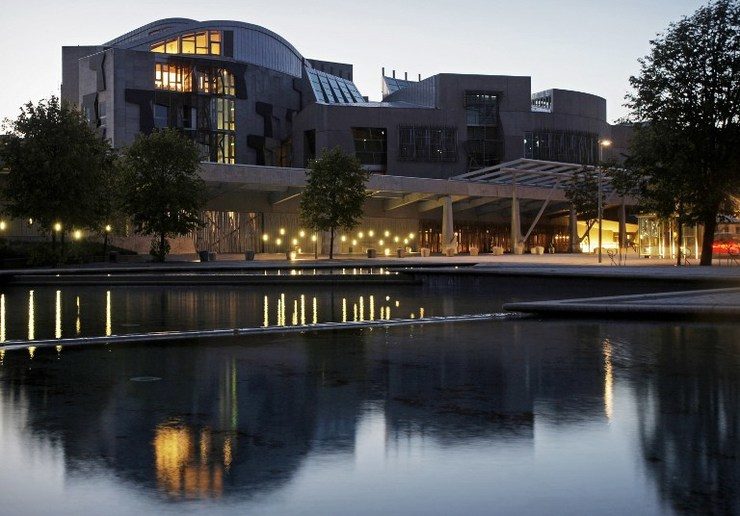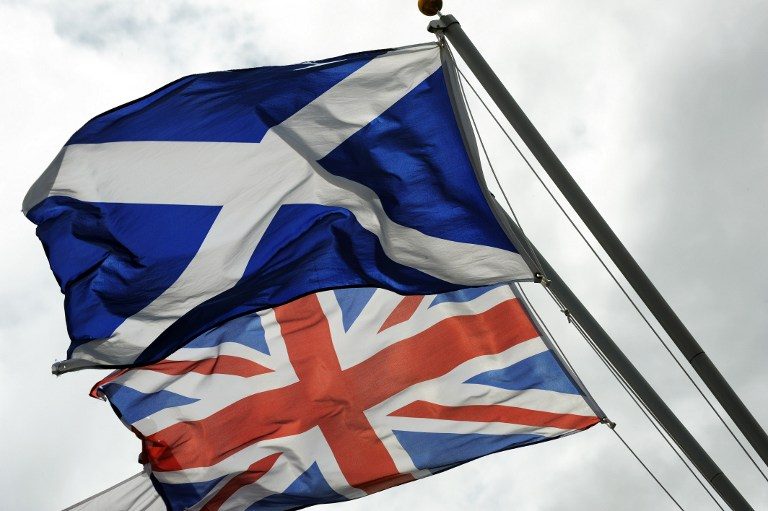SUMMARY
This is AI generated summarization, which may have errors. For context, always refer to the full article.

EDINBURGH, UK – After rejecting independence, Scotland woke up to an unsettled future as fears grow that new powers promised by London will prove a disappointment.
Violent scenes in Glasgow’s main square on Friday night, September 19, may not been repeated elsewhere but many Scots see their nation as divided and are looking to the next few months with uncertainty.
A key question is what fresh powers Conservative Prime Minister David Cameron and Britain’s other main parties will now hand to the Scottish parliament in Edinburgh.
Many people do not trust a Westminster elite preoccupied by a general election in May to honor a pledge of accelerated devolution made in the heat of the campaign.

First Minister Alex Salmond, who announced his resignation after the vote, said on Friday that the proposed timetable already showed signs of slipping and warned that “some of the people who voted ‘No’ will be incandescent” if it is not delivered.
“All these promises were made – it’s as if they were dangling a carrot and he (Cameron) has taken that away now he’s got the vote he wanted,” said Louise Roberts, an unemployed 27-year-old who voted for independence.
“I can’t believe that everybody has given the chance for freedom away.”
Former Labor prime minister Gordon Brown, who is credited with helping push the pro-union camp to victory, said Saturday that “the eyes of the world” were now on London’s political leaders.
In a passionate speech in Fife, the Scot vowed to personally keep up the pressure and said a date had already been set for the British parliament to discuss a new Scottish settlement on October 16.
“These are men who have been promise makers and they will not be promise breakers,” he said.
‘Divided country’
This uncertainty comes as Scotland tries to unite after a passionate and sometimes fractious referendum campaign which left more than four out of ten in a nation of 5.2 million disappointed with the result.
Politics has, unusually, been the talk of Scotland’s homes, pubs and cafes in recent weeks and Thursday’s referendum attracted an unprecedented 85 percent turnout.
Although Scots rejected independence by over ten percentage points, many “No” voters did so on the basis that they had been promised fresh powers for Scotland.
“It’s a very divided country at the moment, but if the powers come into play I think it will be fine for us,” said Adam Stevenson, a 22-year-old hospitality worker.
He said the Westminster parties would be “stupid” not to honour their commitments.
“I thought it was going to be a ‘Yes’ and I think they will follow through because that’s why a lot of people went ‘No’ in the end,” he said.
Queen Elizabeth II has led calls for unity, and voters from both sides are now being urged to display a “One Scotland” picture on their Twitter and Facebook pages.
The Church of Scotland is also holding a service of reconciliation in Edinburgh on Sunday.
Westminster wrangling
Edinburgh already has control over some domestic policies such as health and education but has been promised new powers over tax and welfare.
The pro-union camp outlined a timetable for greater powers in the final days of the campaign after opinion polls suggested “Yes” could snatch a surprise victory.
However, there are concerns that the deal could be derailed by wrangling at Westminster.
Cameron wants to include the new Scottish settlement in a wider package that would also give England new powers.
But the opposition Labour party worries the changes could blunt the influence of their 40 Scottish lawmakers.
“They must deliver. If they do not, then the clamour will grow for another referendum,” Scotland’s Herald newspaper said in an editorial Saturday.
Salmond, who led the campaign for independence, announced Friday that he will step down in November after seven years as first minister.
But he insisted Scotland would continue to hold London’s “feet to the fire” to ensure they devolve further meaningful authority to Scotland.
“The real guardians of progress are not the politicians at Westminster but the energised activism of tens of thousands of people who I predict will refuse meekly to go back into the political shadows,” he said. – Rappler.com
Add a comment
How does this make you feel?
There are no comments yet. Add your comment to start the conversation.